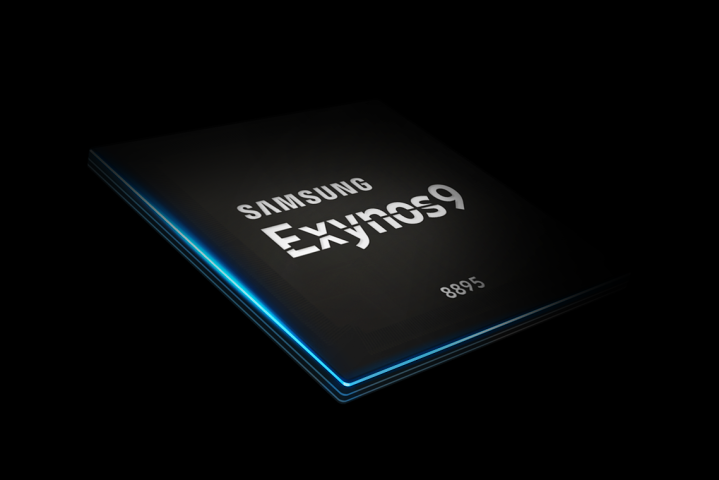
The 8895 boasts an octa-core, 64-bit CPU, combining four of Samsung’s second-generation, custom-designed cores with four Cortex-A53 cores for performance and efficiency, respectively. Heterogeneous architecture means all cores can interact and share tasks simultaneously, enabling faster calculations for artificial intelligence and machine learning.
The CPU accompanies ARM’s Mali G71-MP20 GPU, good for a 60 percentgain in performance over its predecessor, according to Samsung. Minimizing latency for 4K virtual reality applications was reportedly one of the key goals for the Exynos 9’s graphics capabilities.
The processor’s party piece, however, might be its wireless modem. Samsung says the 8895 is the world’s first mass-produced SoC to support gigabit downloads over LTE with the help of carrier aggregation. While no domestic carrier can push data at quite that speed yet, many expect to deliver 1Gbps connectivity to customers in select markets by the end of the year.
In addition to download speeds that aren’t really possible yet, the 8895 is also built to take advantage of multimedia content that isn’t really common at this time. The advanced multiformat codec enables playback and recording of 4K content at up to 120 frames-per-second. The chip can power front and rear cameras at a maximum of 28MP each, and sports two image signal processors — one for high quality, the other to conserve power.
Samsung’s processor also features a dedicated vision processing unit for purposes like object recognition and motion detection. Meanwhile, a security processing unit handles fingerprint and iris recognition for device security, as well as mobile payments.
Samsung says the 8895 is in production now, though it hasn’t officially stated which devices it will launch in. In the past, the company’s flagship Galaxy S smartphone line has launched Qualcomm Snapdragon- and Exynos-powered variants simultaneously, so there is a precedent if Samsung decides to go that route. Earlier rumors indicated it might opt for another, more powerful 9 series chip, dubbed the 9810, which has not been announced. Samsung has teased that more Exynos information will be revealed at Mobile World Congress next week.


